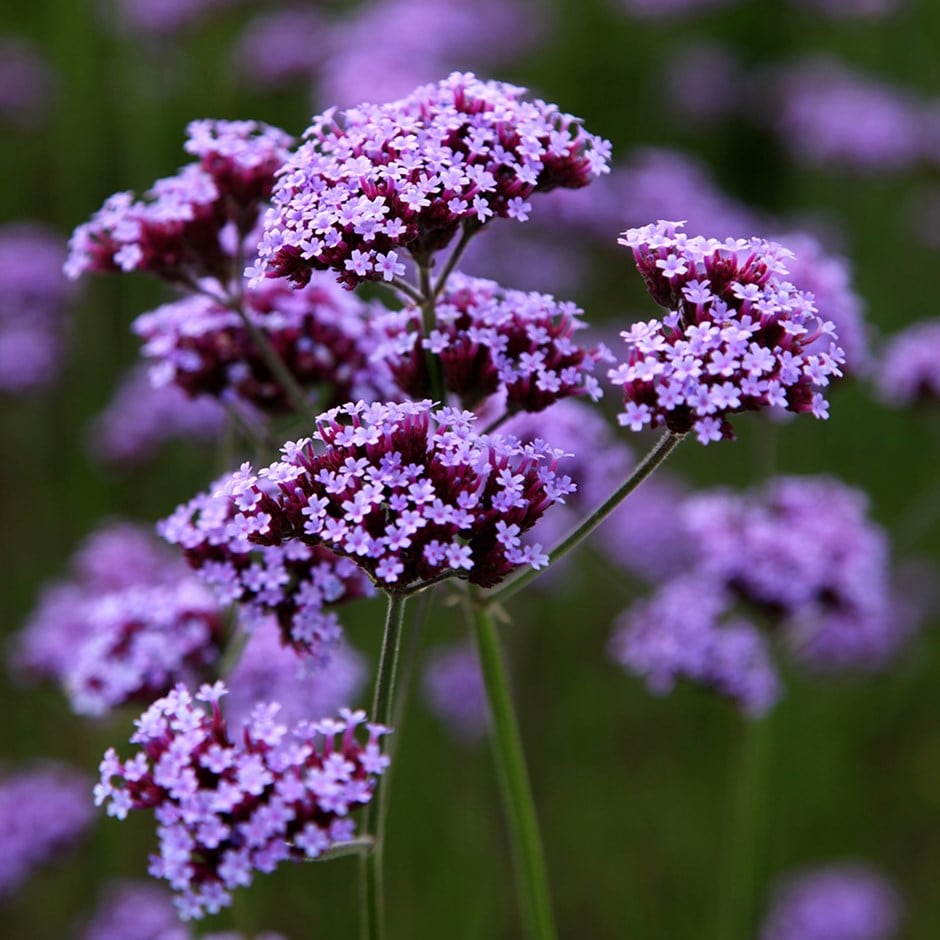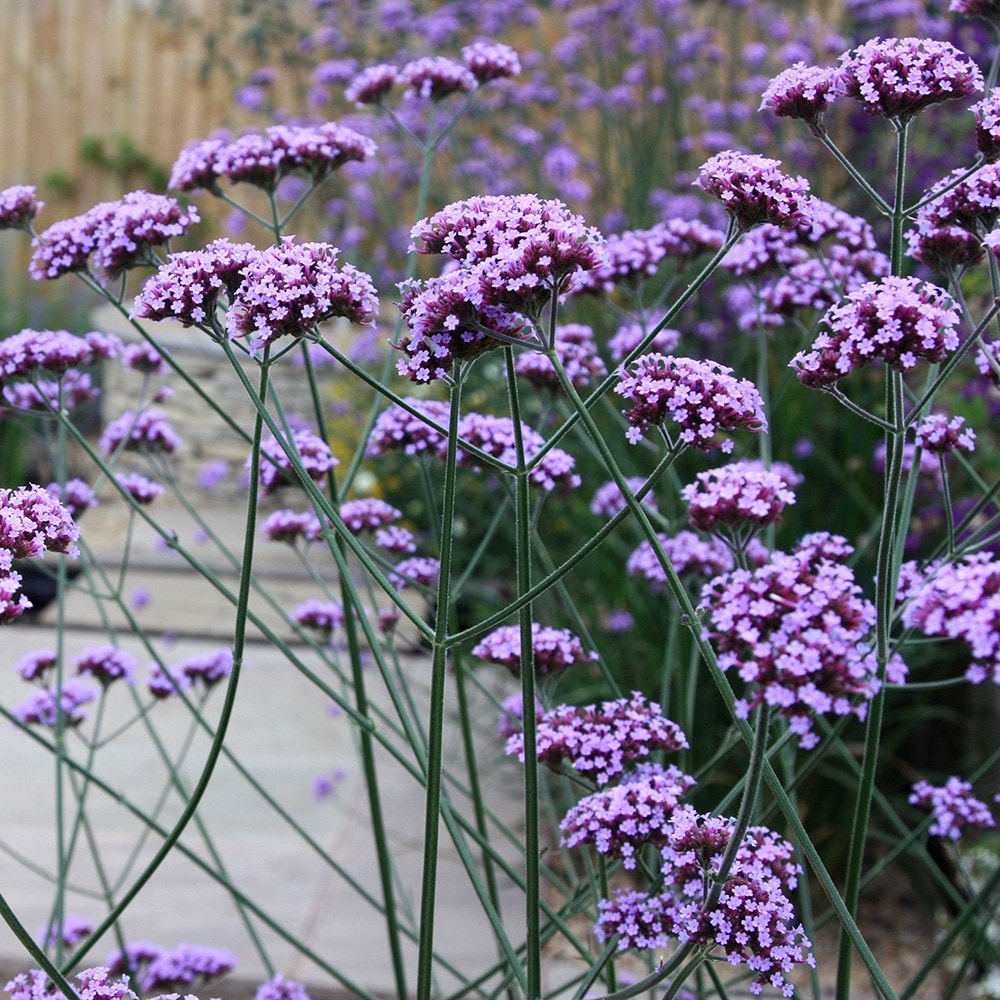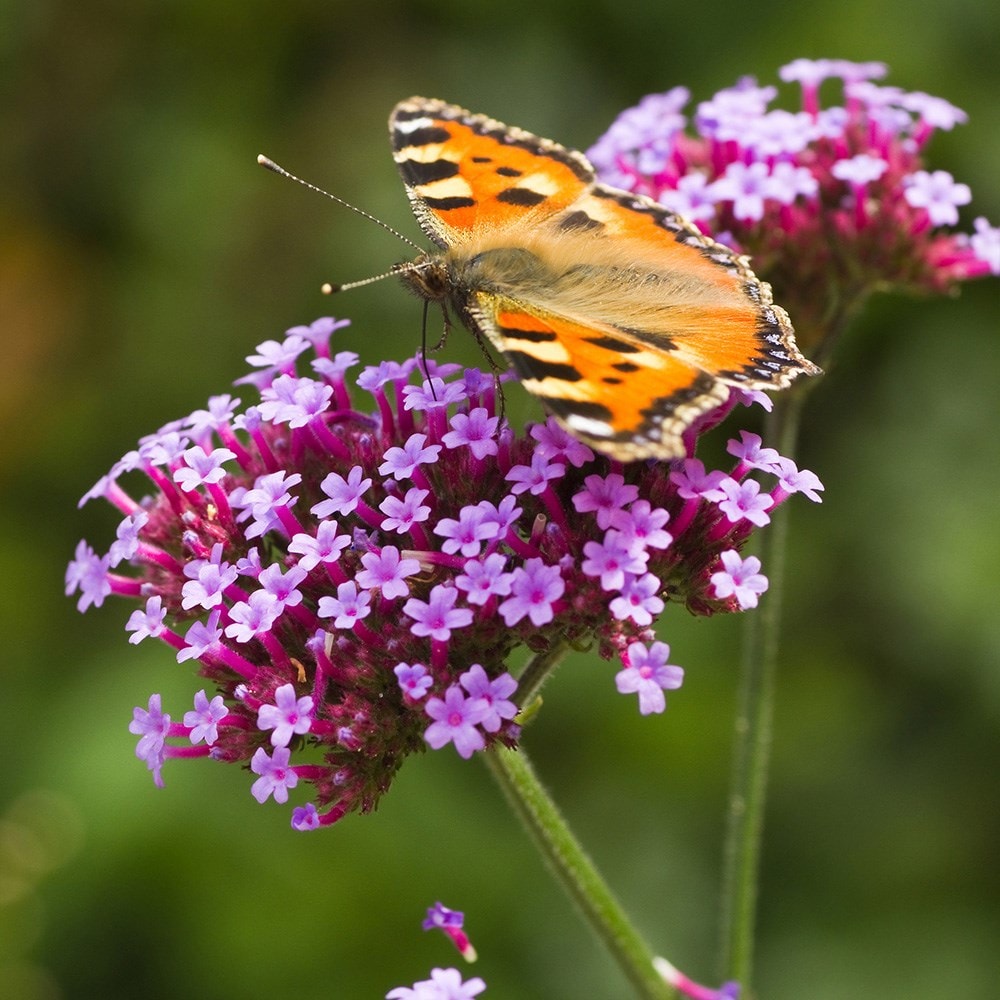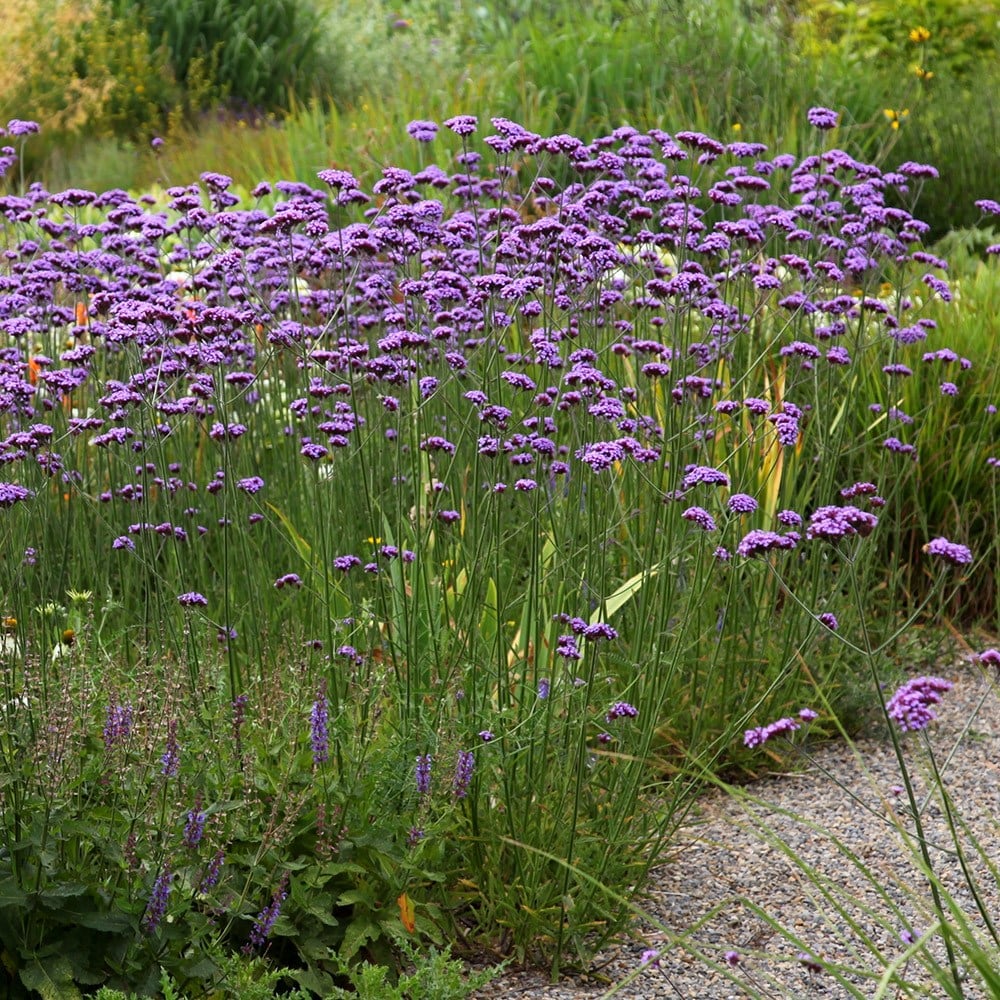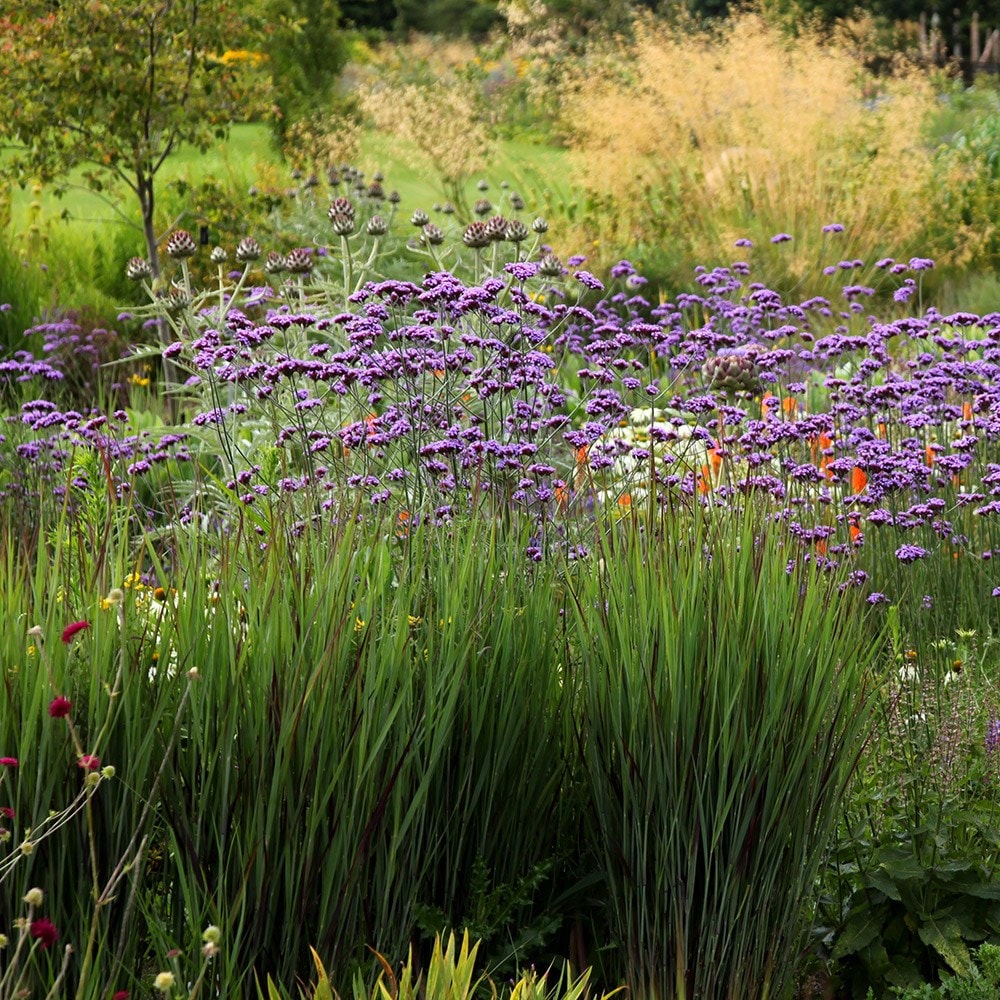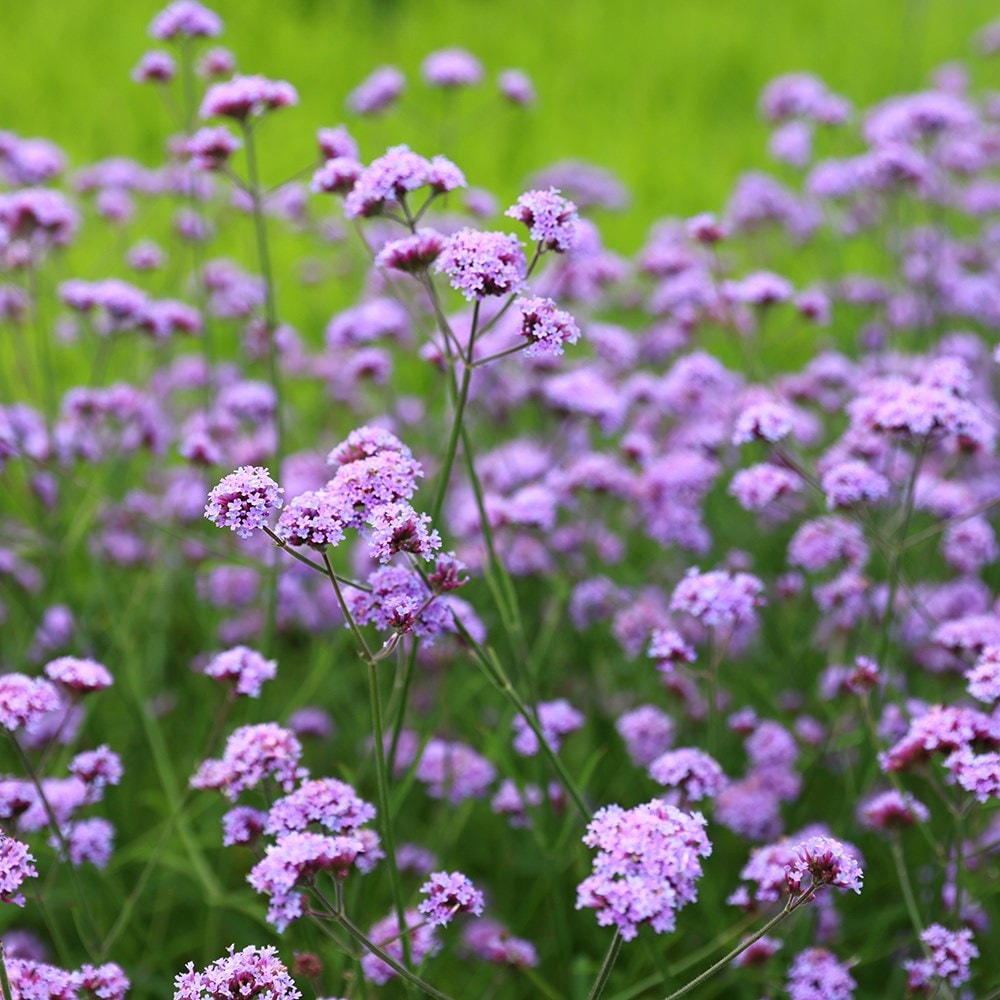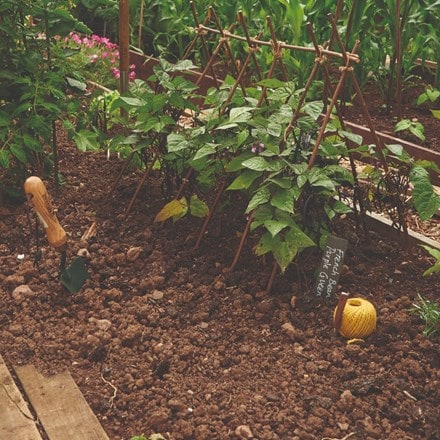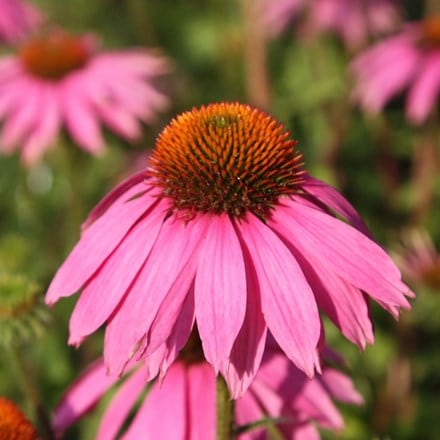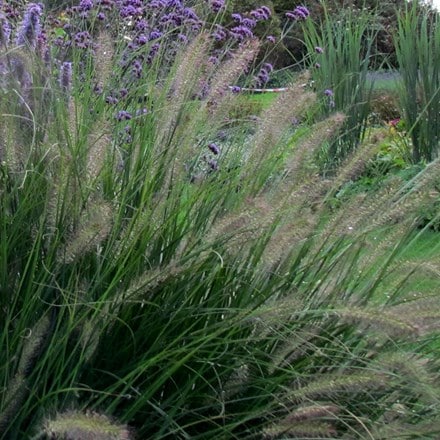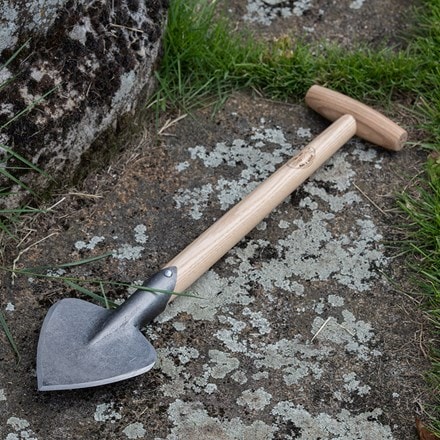Verbena bonariensis
purple top
- 3 × 9cm pots
- £9.00 £14.97
- In stock (shipped within 3-5 working days)
- 9cm pot
- £4.99
- In stock (shipped within 3-5 working days)
- 9 × 9cm pots
- £19.00 £44.91
- In stock (shipped within 3-5 working days)
- 2 litre pot
- £15.99
- In stock (shipped within 3-5 working days)
- 3 × 2 litre pots
- £39.99 £47.97
- In stock (shipped within 3-5 working days)
- approx 250 seeds
- £2.99
- In stock (shipped within 3-5 working days)
- 3 × packets (approx 750 seeds)
- £6.00
- In stock (shipped within 3-5 working days)
Delivery options
- Standard £5.95
- Position: full sun
- Soil: moderately fertile, moist, well-drained soil
- Rate of growth: average to fast
- Flowering period: June to September
- Hardiness: borderline hardy (may need winter protection)
Tightly packed clusters of lilac-purple flowers on tall, stiff, branching stems from June to September. This stylish perennial has been enjoying a resurgence of interest in recent years. Perfect for a sheltered, sunny, well-drained spot, its open, transparent shape means that it can easily be used at the front or middle of the border despite its height.
This plant will help to sustain bees and butterflies into autumn with its tall wiry stems of purple flowers. It makes a good filler, because the upright stems support neighbouring plants. Plant it among the warm-red Dahlia ‘Bishop of Llandaff’ and it will act as supports, negating the need for staking, whilst providing a dazzling display.
This plant will help to sustain bees and butterflies into autumn with its tall wiry stems of purple flowers. It makes a good filler, because the upright stems support neighbouring plants. Plant it among the warm-red Dahlia ‘Bishop of Llandaff’ and it will act as supports, negating the need for staking, whilst providing a dazzling display.
In cold conditions Verbena bonariensis can suffer dieback if cut back in autumn, so it's best to leave the plant until spring and cut back the old growth when you see the new shoots emerging at the base. Also it's a good idea to mulch around the base of the plant with a deep, dry mulch in winter to help protect the plant. Where plants are grown in either exposed or partially shaded positions, they may need to be supported. If this is necessary use natural materials such as brushwood or twiggy pea-sticks.
Early sowings can be started off from February, in seed trays which are kept under glass before hardening off and planting out. Alternatively, after the worst frosts have passed, sow directly into a sunny, well-prepared seed bed, thinning the seedlings out to 45-60cm as they grow. Pinching out the growing tips will encourage bushier plants to develop.
